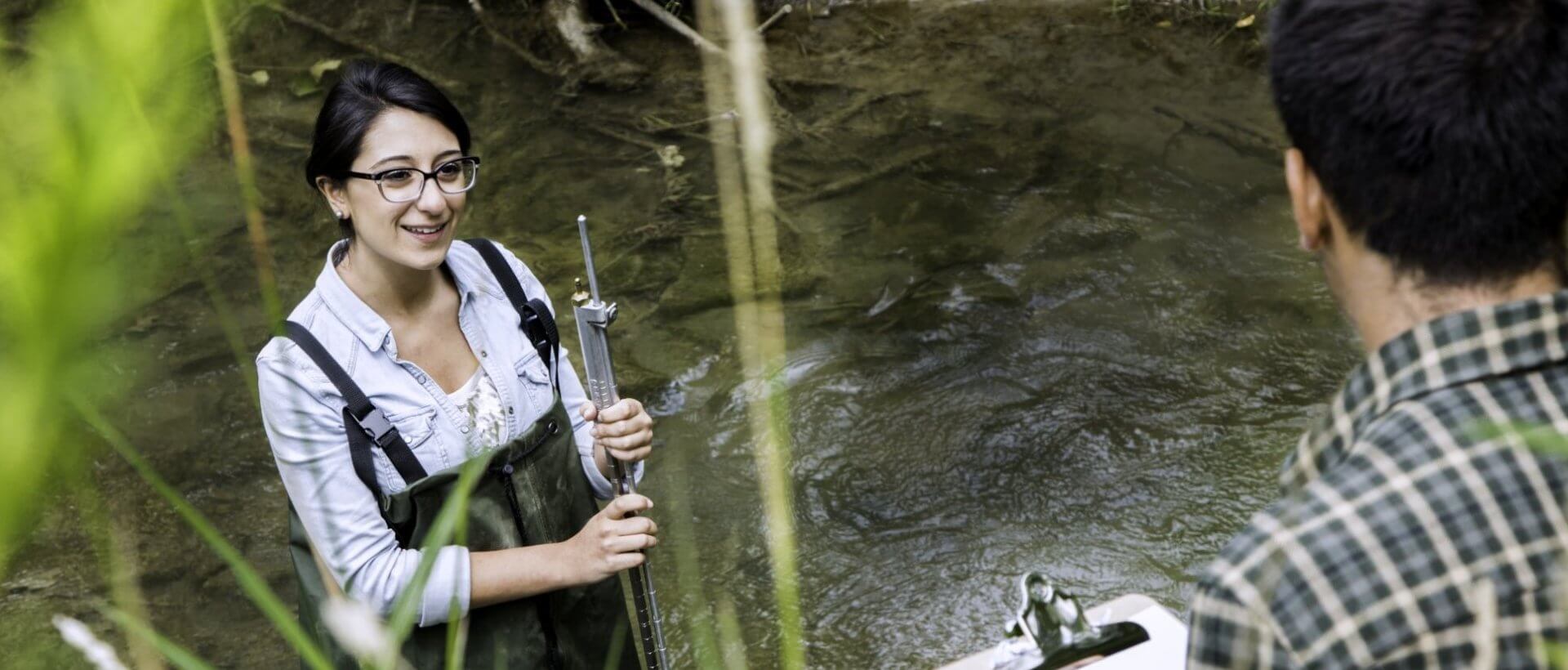
Mid to high 80s
Anticipated Admission Average

85
Target Enrolment
Your Classes
What you’ll take:
- Biodiversity, Evolution and Humanity (BIOLOGY 1M03)
- Calculus for the Life Sciences I (MATH 1LS3)
- Cellular and Molecular Biology (BIOLOGY 1A03)
- Climate, Water and Environment (ENVIRSC 1C03)
- Earth and the Environment (EARTHSC 1G03)
- Introduction to Psychology, Neuroscience & Behaviour (PSYCH 1X03)
- Introductory Chemistry I (CHEM 1A03)
- Population, Cities and Development (ENVSOCTY 1HB3)
- Society, Culture and Environment (ENVSOCTY 1HA3)
- 6 units of electives
The structure of our Level I Environmental & Earth Sciences Gateway program will provide you with a range of Level II program options including:
- Honours Actuarial and Financial Mathematics (B.Sc.)
- Honours Applied Psychology in Human Behaviour (B.A.Sc.)
- Honours Applied Psychology in Human Behaviour – Autism and Behavioural Science Specialization (B.A.Sc.)
- Honours Applied Psychology in Human Behaviour – Early Childhood Education Specialization (B.A.Sc.)
- Honours Astrophysics (B.Sc.)
- Honours Biology – Physiology Core (B.Sc.)
- Honours Biology – Physiology Research Specialization (B.Sc.)
- Honours Biodiversity and Environmental Sciences (B.Sc.)
- Honours Biology and Mathematics (B.Sc.)
- Honours Biology Core (B.Sc.)
- Honours Chemical Biology (B.Sc.)
- Honours Chemistry (B.Sc.)
- Honours Earth and Environmental Sciences (B.Sc.)
- Honours Environmental Sciences (B.Sc.)
- Honours Life Sciences (B.Sc.)
- Honours Life Sciences – Origins of Disease Specialization (B.Sc.)
- Honours Life Sciences – Sensory Motor Systems Specialization (B.Sc.)
- Honours Mathematics and Computer Science (B.Sc.)
- Honours Mathematics and Physics (B.Sc.)
- Honours Mathematics and Statistics (B.Sc.) (including subplans)
- Honours Medical and Biological Physics (B.Sc.)
- Honours Molecular Biology and Genetics Core (B.Sc.)
- Honours Molecular Biology and Genetics Research Specialization (B.Sc.)
- Honours Neuroscience (B.Sc.)
- Honours Physics (B.Sc.)
- Honours Psychology, Neuroscience & Behaviour (B.Sc.)
- Honours Psychology, Neuroscience & Behaviour – Mental Health Specialization (B.Sc.)
- Honours Psychology, Neuroscience & Behaviour – Music Cognition Specialization (B.Sc.)
- Honours Sustainable Chemistry (B.A.Sc.)
For a full list of courses that can be available in this program, please consult the academic calendar.

